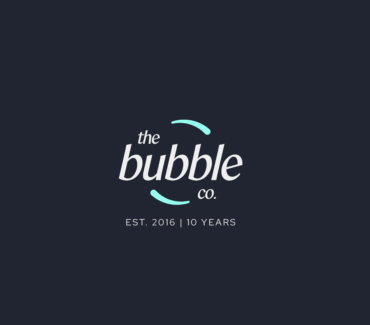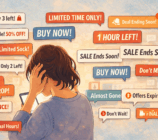Many AI-agencies have popped up in recent years, particularly after the rise of tools such as ChatGPT. Automated content, machine-powered media buying, chatbots that promise to replace your sales team – AI seems like the golden ticket. The uncomfortable truth; some agencies are doing it wrong. Well, at least in our experience anyway. While AI is an amazing tool that can supercharge your marketing efforts, it cannot replace strategy, creativity or the human insights that drive real results.
The problem
Some agencies are using AI to cut corners, rather than to create real impact – and it’s costing you (their clients) dearly. AI-marketing feels and sounds generic, forgettable and many times, misaligned with your brand. Put simply, some agencies (and brands) are over-relying tools such as ChatGPT, Jasper or Claude to create all their content.
We’re not anti-AI
Let’s be clear, we love AI. In fact, we too use it daily – to streamline research, speed up workflows, brainstorm, ideate and supercharge our output. But here’s the catch – without human expertise – then AI just becomes a glorified copy machine – churning out content that sounds okay, but is not really creating any real value. Some agencies out there are solely relying on automation, which means their clients’ audiences are getting robotic, irrelevant, fabricated content from AI tools.
What AI Cannot Do
Some will argue this, sure, but let’s be real. Some of these AI tools are not yet at the point where they can project:
- Original creative strategy: AI cannot originate truly novel ideas — it remixes what already exists based on patterns, not creative intuition. It simply repurposes and rewords content based on the sources it gathers its learning from.
- Emotional & Cultural nuance: Marketing is about human psychology. A machine cannot fully grasp emotional context, sarcasm, humour, or the cultural subtext behind a message.
- Deep customer empathy: AI doesn’t know your customers as deeply as you do. It’s not going to understand their fears, doubts, pain points or hidden motivations. It cannot attend events, participate in sales calls, or read between the lines of customer feedback. That kind of empathy is still 100% human.
- Brand consistency: AI can mimic a voice if trained but without human oversight, it lacks tone, personality and values. Generic AI content is the fastest way to blend in (or worse, get ignored).
- Critical Thinking & Judgment: AI won’t tell you when your brief is wrong. It also cannot tell you which of three ideas is most likely to resonate based on years of hands-on marketing experience.
Is AI-content bad for your SEO?
Google emphasises the importance of providing your audience with helpful, high-quality content. It prioritises user-focused content that is valuable, original and SEO-optimised.
Common pitfalls of AI-generated content for your website. Blogs or anything else that contributes to your SEO include:
- Lack of originality: generic AI-content is not going to perform as well as human-crafted content
- Poor quality: AI sometimes produces poor-quality or inaccurate content, so it won’t perform well in search engines
- Spammy content: Generating large volumes of low-value content with the goal of manipulating search results can violate Google’s spam policies and harm your domain authority
TL;DR: Don’t use AI-generated content on your website – it can negatively affect your SEO rankings.
The Sweet Spot: Human-AI Hybrid Model
The future of marketing isn’t one or the other – human or AI. It’s both, working together. At The Bubble Co, we use AI to handle some heavy lifting; speeding up research, analysing data patterns, brainstorming and ideating. Then our team of human experts steps in – refining, rewriting and reshaping that output into content that connects on a human level.
AI gives us scale, but humans give us soul. The agencies that get AI right know it’s not about replacing humans — it’s about empowering them.
Curious what AI should be doing for your marketing?Let’s chat.




